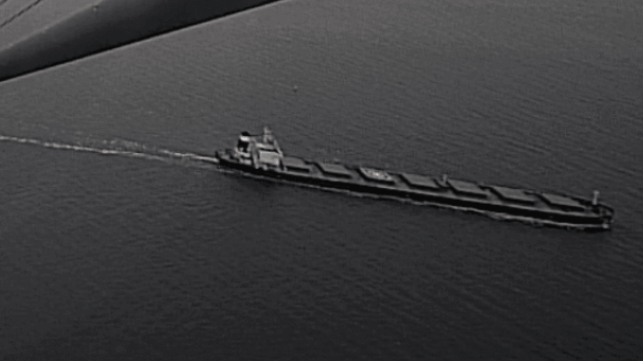China Blocks Investigation of Bulker Suspected of Baltic Subsea Attack
Chinese Vessel Leaves Baltic Amid Investigation

In a troubling development, Chinese officials have denied a Swedish prosecutor access to the bulker Yi Peng 3, which is under investigation for allegedly damaging subsea cables in the Baltic Sea. The vessel has since departed the region, heading towards Egypt. This situation raises significant concerns about international cooperation in maritime law enforcement, especially regarding incidents that could threaten critical infrastructure. The refusal to allow a thorough investigation has left many questioning the implications for future maritime security in Europe.
Incident Overview: Subsea Cable Sabotage
On November 17-18, two subsea cables off the coast of Sweden were severed under suspicious circumstances. The bulker Yi Peng 3 was observed behaving erratically in the vicinity of the cable breaks. Data from the Automatic Identification System (AIS) indicated unusual maneuvers that coincided with the timing of the incidents. Furthermore, one of the vessel’s anchors was found to be severely twisted, and the damaged areas of the seabed exhibited clear signs of anchor-dragging. These findings have raised alarms about the potential for deliberate sabotage.
The situation escalated when Danish forces intercepted the Yi Peng 3 as it entered the Great Belt. However, instead of halting the vessel, Danish authorities allowed it to continue its journey, ultimately anchoring just outside Danish territorial waters in the Kattegat. For a month, the ship remained in this location, guarded by Danish and German naval vessels. This positioning in international waters effectively shielded the vessel from law enforcement actions, complicating the investigation.
Sweden, which is leading the investigation, sought permission from China, the flag state of the Yi Peng 3, to board and inspect the vessel. Initially, Chinese authorities expressed willingness to cooperate but later sent their own investigative team, restricting access for Swedish officials. This decision has drawn criticism from Swedish officials, who argue that the lack of access undermines the integrity of the investigation.
Questions and Answers on Maritime safety: new proposals to support clean and modern shipping
International Implications and Responses
The refusal of Chinese officials to allow Swedish investigators on board the Yi Peng 3 has sparked a broader discussion about international maritime security. Swedish Foreign Minister Maria Malmer Stenergard expressed her concerns, stating, “It is remarkable that the ship leaves without the prosecutor being given the opportunity to inspect the vessel and question the crew.” This sentiment reflects a growing frustration among European nations regarding China’s lack of cooperation in matters of maritime law enforcement.
The incident is not an isolated case; it marks the second suspected attack on subsea infrastructure involving a Chinese vessel in the Baltic Sea within two years. Lithuanian Foreign Affairs Minister Kestutis Budrys has called for decisive action, emphasizing the need to address vulnerabilities in European waters. He stated, “Building security starts with mitigating weaknesses,” highlighting the importance of establishing new navigation rules to counteract potential threats.
As the Yi Peng 3 continues its journey southward through the North Sea and towards the English Channel, it raises questions about the effectiveness of current international maritime laws. The vessel’s route will soon take it through the Strait of Dover, the last point where it could be apprehended by Sweden’s NATO allies. After that, it will be free to navigate through international waters, potentially evading further scrutiny. The ongoing situation underscores the urgent need for enhanced cooperation and coordination among nations to safeguard critical maritime infrastructure.
